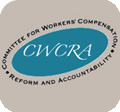| Home | Press Home | In the News | Schwarzenegger unveils political reforms as court action looms
September 18, 2003 Schwarzenegger unveils political reforms as court action looms Jim Wasserman, San Francisco Gate
Political influence peddling by railroad barons that led to the recall movement served as a historical backdrop Thursday for actor Arnold Schwarzenegger as he unveiled his platform to clean up politics. Schwarzenegger spoke in support of a constitutional amendment ensuring public access to most government meetings and documents and proposed a series of reforms ranging from redrawing political boundaries to strengthening campaign finance laws to banning political fund-raising for much of the year. “The people of this state do not trust their government,” Schwarzenegger said during a 35-minute news conference at the California State Railroad Museum. “They feel it is corrupted by dirty money, closed doors and back-room dealing. They see the contributions go in, the favors go out and they’re punished with wasteful spending and high taxes.” Schwarzenegger said he wanted to prevent the governor, lieutenant governor and members of the Assembly and Senate from raising money during the budget season — from January to summer. His campaign said 28 other states have similar fund-raising blackout periods. Schwarzenegger said the state’s 120 lawmakers held 66 fund-raisers in June while debating the budget, sometimes as many as 10 per day. He said he considered extending the ban until bills are signed in October but his experts said “it wouldn’t fly.” The actor-turned-candidate said he chose the museum to unveil his political reforms because it symbolizes the 1911 birth of the recall process allowing him and 134 others to challenge Gov. Gray Davis. Standing before a 19th century locomotive, he invoked the name of Gov. Hiram Johnson, who is considered the father of the recall reform designed to break the grip railroad barons had on politicians. “The special interests in those days ran over people,” he said. “Hiram Johnson stopped them. That’s why I wanted to come here.” Schwarzenegger told reporters that if elected governor, he would not sign bills that don’t receive public hearings in the final rushed hours of the legislative session and would appoint retired judges to draw legislative districts. With a cloud of uncertainty cast by a federal appeals court over the date of the recall election, Schwarzenegger and the leading candidates took no chances, campaigning and raising money as if the election would still proceed Oct. 7. The 9th U.S. Circuit Court of Appeals is expected to rule no sooner than Friday on whether it will consider overturning a ruling by three of its judges that state lawyers said was fundamentally flawed and would harm California voters. The court panel said the hurry-up vote could jeopardize 40,000 potential “hanging chad” votes cast on unreliable punch-card ballots. Lt. Gov. Cruz Bustamante, the Democratic fallback candidate should Davis be recalled, told reporters he preferred the Oct. 7 date. “I think people are starting to get a little bit of a recall fatigue,” he told reporters after being endorsed by Equality California, a gay advocacy group, in West Hollywood. “The preference I have is to resolve the legal issues and to get on with the election on the date that it is.” The latest twists in the recall drama came as candidates behaved as if they were entering toward the homestretch. But the shadow of potential court action loomed. Bustamante’s effort to skirt campaign finance laws by accepting millions of dollars in American Indian casino money in an account that predates spending limits was the subject of a hearing in Sacramento County Superior Court. State Sen. Ross Johnson, R-Irvine, sued Bustamante’s campaign for violating limits set in Proposition 34, the campaign finance initiative approved by voters in 2000. Bustamante shifted the money to oppose Proposition 54, the initiative to ban the state from collecting racial or ethnic data, in ads that feature him. Outside Thursday’s court hearing, Johnson called that a clear evasion. “You can’t have one set of rules for Cruz Bustamante and another set for 134 other candidates,” Johnson said. Bustamante attorney Deborah Caplan said the lieutenant governor acted legally when he channeled campaign money to television ads opposing the initiative. Meanwhile, a tribe that has already backed Bustamante and Davis said it would start an independent campaign for Sen. Tom McClintock, a Republican gaining on Schwarzenegger in the latest polls. So far, records show, the Morongo Band of Mission Indians has spent more than $29,000 conducting polls and focus groups. A spokesman told The Sacramento Bee that the Riverside-based tribe would start a statewide advertising buy for McClintock on Friday. Bustamante and Schwarzenegger garnered large contributions Wednesday. The Democrat’s committee raising money against the Proposition 54 ballot initiative received $250,000 from the California Teachers Association, the state’s largest teachers union. And the movie star accepted $121,000 from William A. Robinson, a founder of the DHL courier company. |
| | Monday, June 7, 2004 | | |
 | |
| Home | |
| CALIFORNIA RECOVERY TEAM | |
| About CRT | |
| GET INFORMED | |
| About Arnold | |
| Leadership | |
| Endorsements | |
| News Room | |
| Opinion | |
| JOIN THE TEAM | |
| Contribute | |
| Volunteer | |
| Share Your Views | |
| SERVICES | |
| Image Center | |
| Multimedia Center | |
| Downloads | |
| Search News | |
| Privacy Policy | |
| Contact Us | |
| ||||||||||||||||
|
Contact Us Privacy Policy |
Copyright © 2003 |


